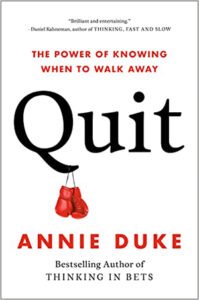|
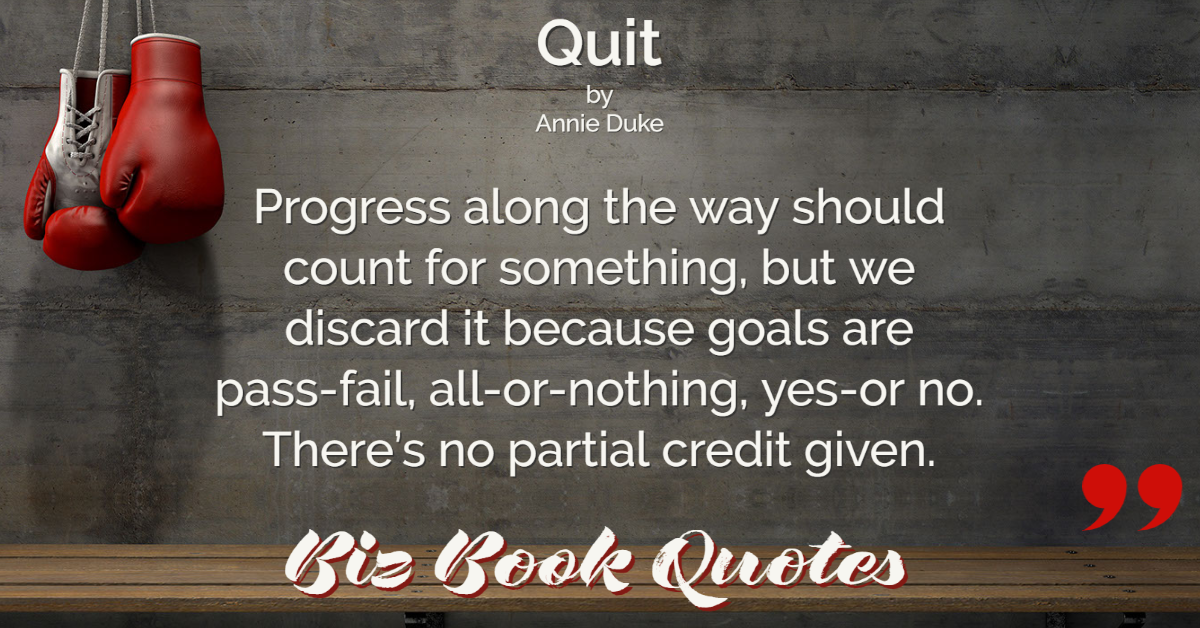
|
Quit:
Progress along the way should count for something, but we discard it because goals are pass-fail, all-or-nothing, yes-or no. There’s no partial credit given.
|
234 |
|
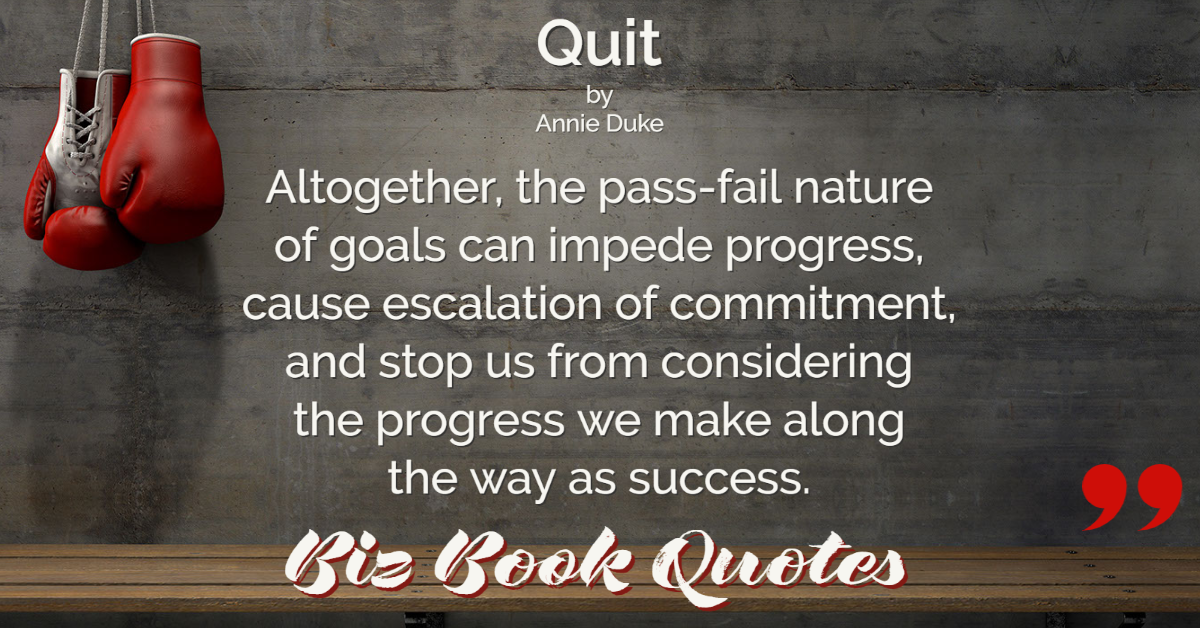
|
Quit:
Altogether, the pass-fail nature of goals can impede progress, cause escalation of commitment, and stop us from considering the progress we make along the way as success.
|
234 |
|
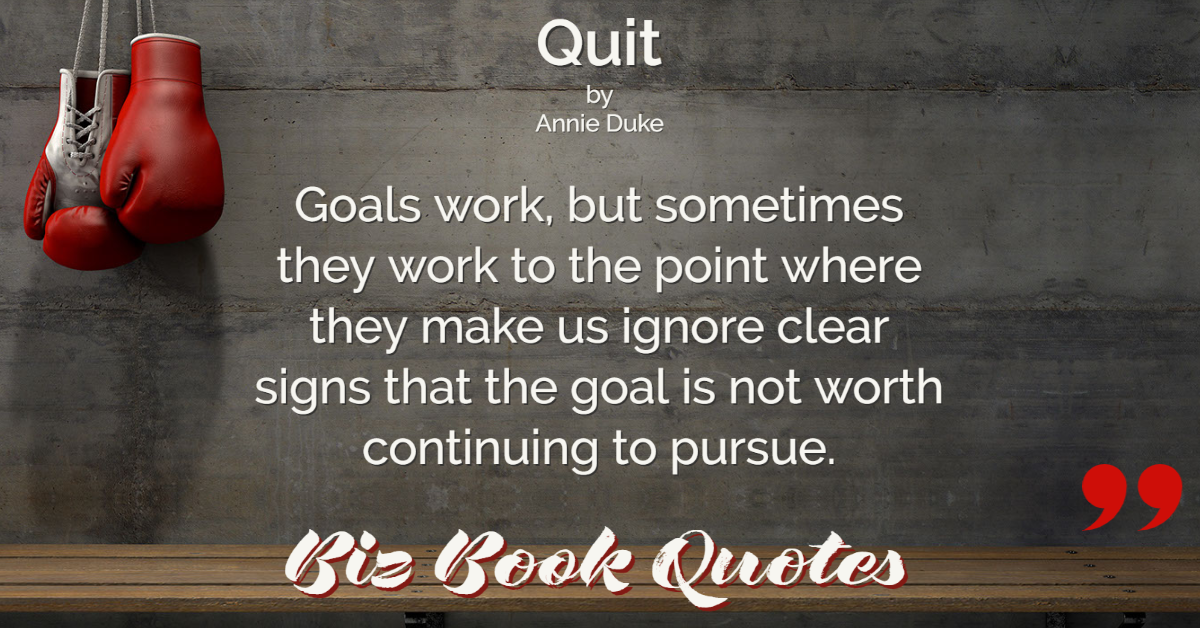
|
Quit:
Goals work, but sometimes they work to the point where they make us ignore clear signs that the goal is not worth continuing to pursue.
|
234 |
|
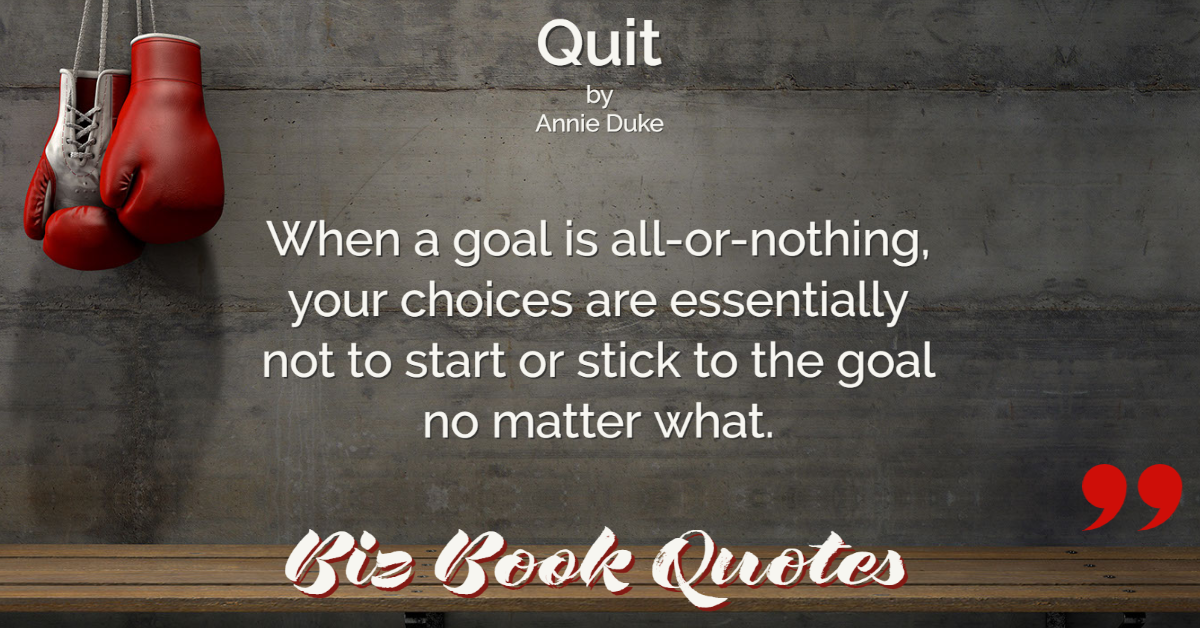
|
Quit:
When a goal is all-or-nothing, your choices are essentially not to start or stick to the goal no matter what.
|
234 |
|
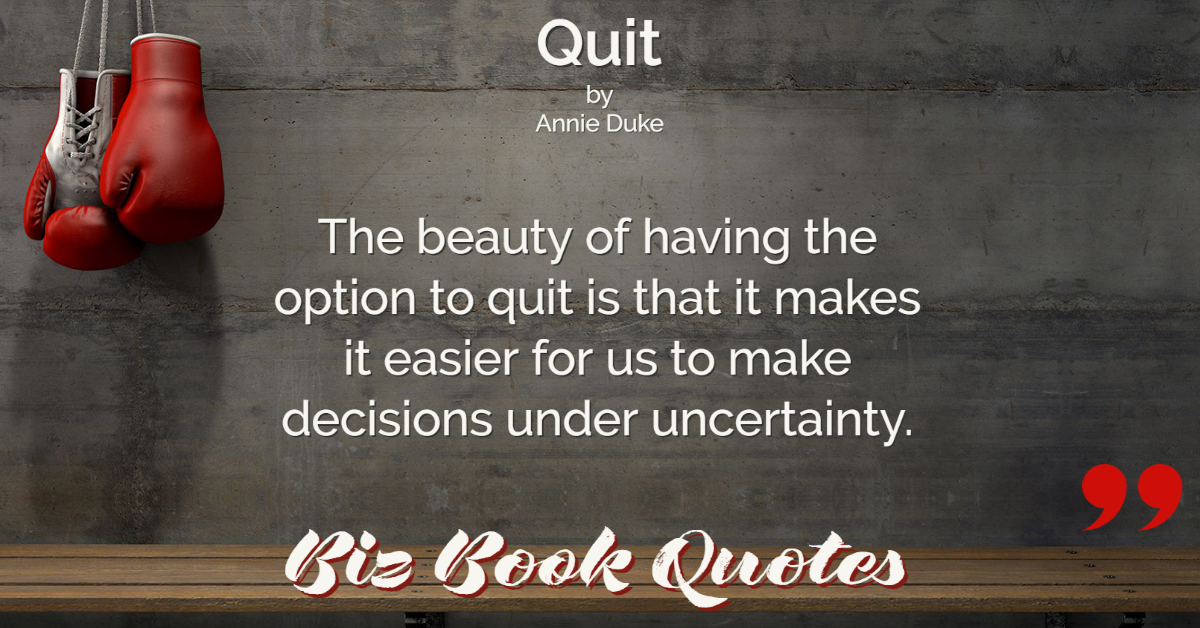
|
Quit:
The beauty of having the option to quit is that it makes it easier for us to make decisions under uncertainty.
|
235 |
|
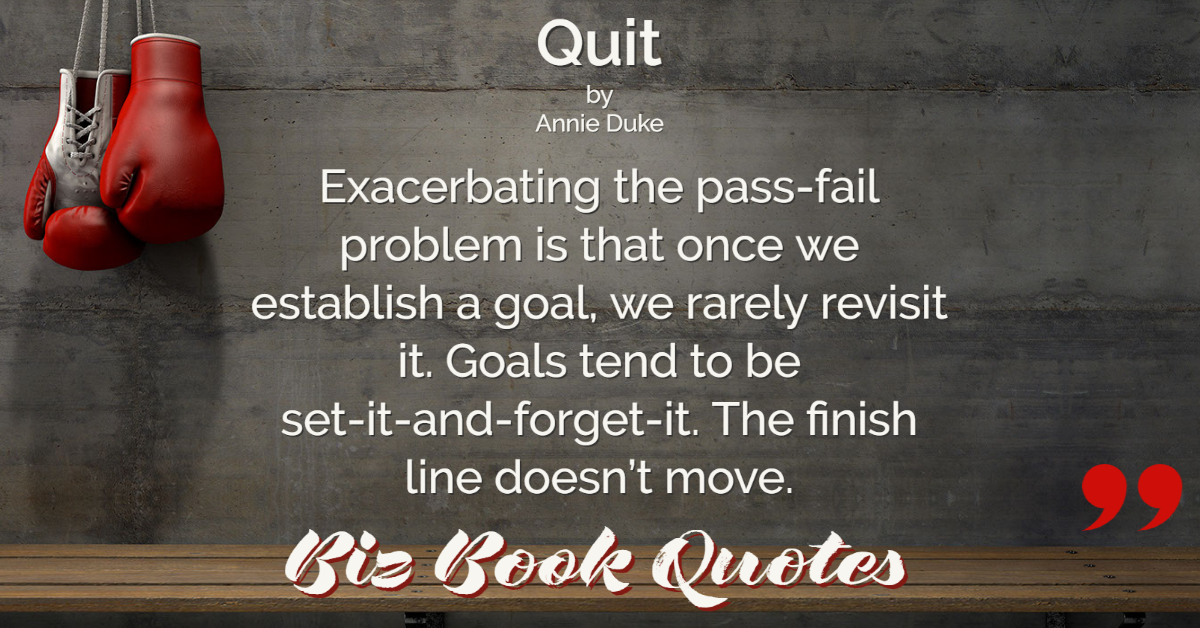
|
Quit:
Exacerbating the pass-fail problem is that once we establish a goal, we rarely revisit it. Goals tend to be set-it-and-forget-it. The finish line doesn’t move.
|
235 |
|

|
Quit:
To achieve the things we want to achieve, we have to be responsive to the way the world is changing around us and the way that we ourselves are changing.
|
237 |
|
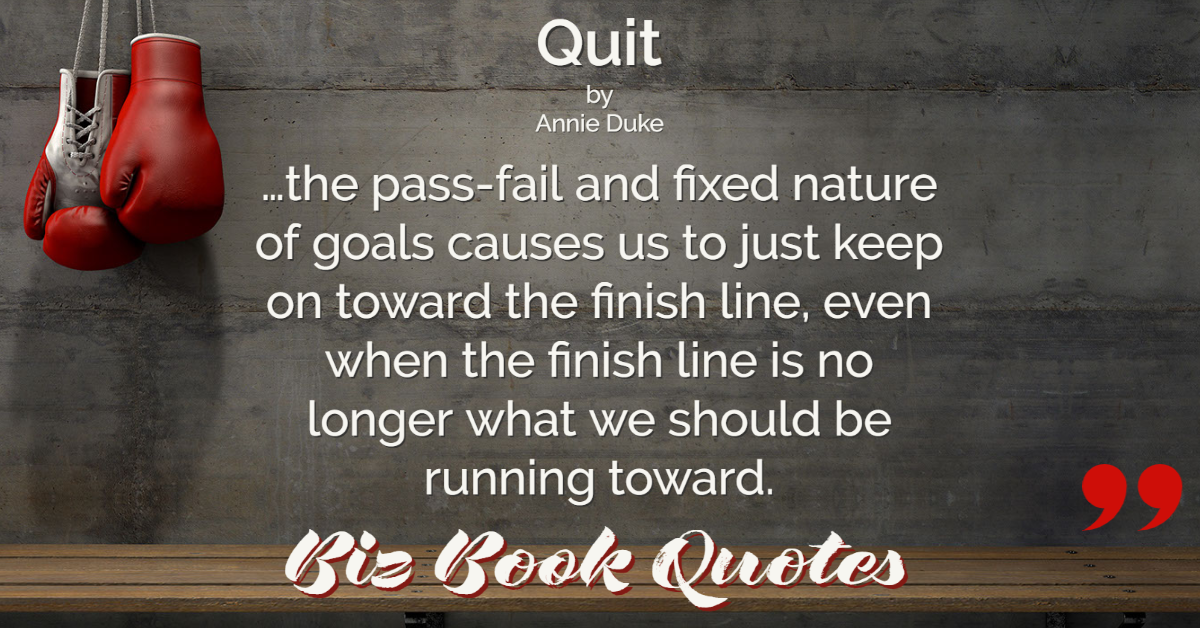
|
Quit:
…the pass-fail and fixed nature of goals causes us to just keep on toward the finish line, even when the finish line is no longer what we should be running toward.
|
237 |
|
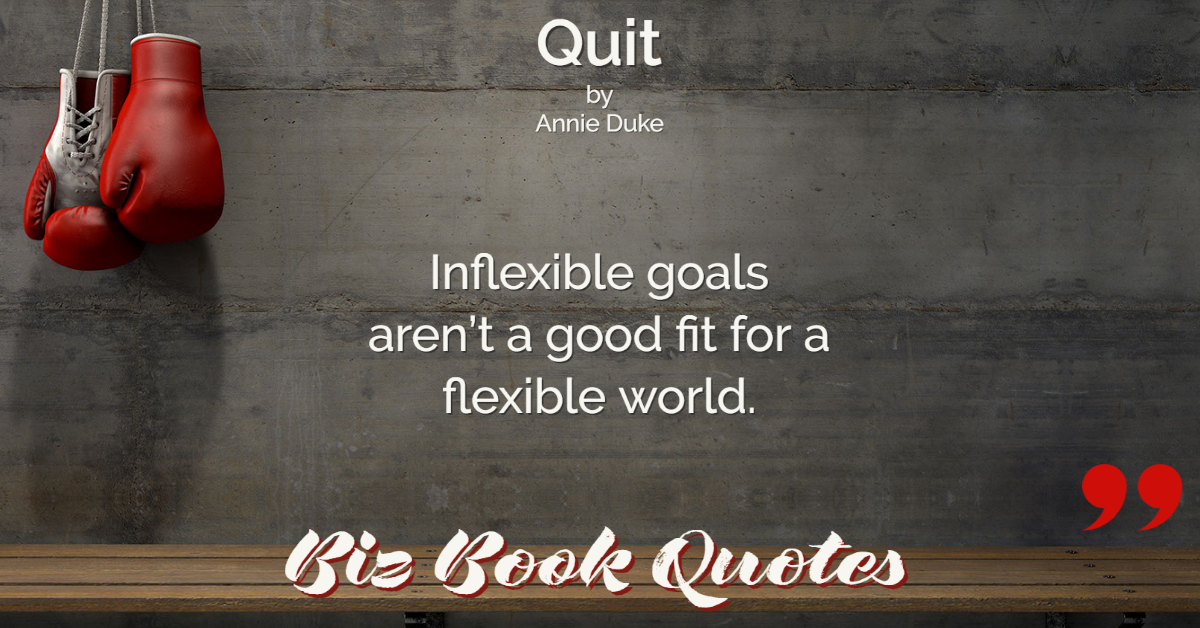
|
Quit:
Inflexible goals aren’t a good fit for a flexible world.
|
237 |
|

|
Quit:
Adding a few well-thought-out unlesses to our goals will help us achieve the flexibility that we’re seeking, be more responsive to the changing landscape, and reduce escalation of commitment to losing causes.
|
238 |
